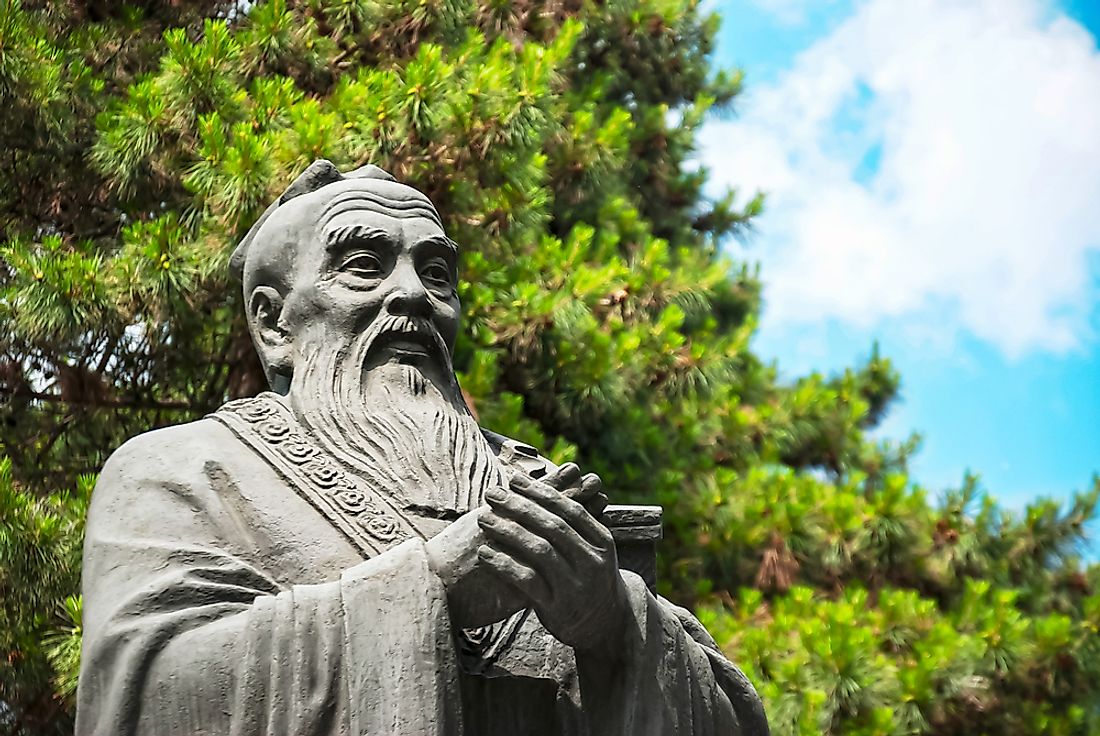Who Are The Han Chinese People?

5. Geographic Distribution
The Han people belong to the largest ethnic group in China, with around 90% of people in mainland China being Han. Taiwan counts 90% of its people as Han Chinese as well, Hong Kong has about 6.6 million Han Chinese, while Singapore has 2.7 million Han. The Han people have long prospered in China, and increasingly many have ventured abroad and settled worldwide. Internationally, Han people can be found in Macau. Australia, Indonesia, Thailand, Myanmar, Vietnam, Japan, Laos, India, Cambodia, Malaysia, Russia, the United States, Canada, Peru, France, and England. Almost 1 in every 5 people on our planet are ethnically Han Chinese, though most of these live in the People's Republic of China.
4. Historical Role
Han people originally ruled and influenced China during the Han Dynasty, beginning in 206 BC. Arts and science flourished during this time, which is often referred to as the Golden Age of China. The period introduced Buddhism, saw the spread of Confucianism and Taoism, and further developed the use of Chinese characters in writing. This was also the start of the Silk Road route that established trade between China and many nations far to the west. The first Chinese emperor, Huang-di, also called the Yellow Emperor, who united China, is considered by many Han as an ancestor. Huang-di ruled the Hua Xia tribe that lived by the Yellow River, thus his title as the Yellow Emperor. The Yellow River in China is considered by the Han as the cradle of their civilization, from where Han culture began and spread outwardly.
3. Language, Religion, and Ways of Life
Hanyu was the original language of the Han, and a tongue which later developed into an early version of Mandarin Chinese. Then, a written vernacular Chinese was increasingly used as a link among and between the many local languages used that time. Folk religion also played a large role in Han life. The worship of figures in Chinese mythology and clan ancestors were fused with Confucianism and Taoist Buddhism. The Han family structure was run like a business concern, with the head, the treasurer manager, and the family members all working together. A typical house had different areas and buildings designated for every member of the family. Food varied from spicy Sichuan cooking to Dim Sum "small dishes" to various ethnic influences.
2. Notable Han Accomplishments
The Golden Age of China during the Han Dynasty brought a renaissance to Chinese literature, philosophy, arts, and cuisine. The early Han people introduced many discoveries to the outside world that came into contact with them. These included fireworks, rockets, gunpowder, the crossbow, cannons, and matches. Paper, printing, paper money, porcelain, silk, lacquer, compass, and earthquake detectors were also developed in China long ago. The Ming Dynasty, also ruled by Han people, contributed to the building of the Great Wall, which was began by the first Han Emperor, Huang-di, during the first Imperial Dynasty. The Terracotta Army of Huang-di is also a Han accomplishment. The Terracotta Army and Great Wall alike have been declared as UNESCO World Heritage Sites.
1. Modern Presence and Influence
Modern Han people are still receiving accolades for their meaningful contributions to the fields of science and mathematics. A few of them have been recipients of Nobel Prize awards. Namely, Han Nobel Laureates have included Charles K. Kao, Daniel C. Tsui, Chen Ning Yang, Yuan T. Lee, Samuel C. C. Ting, Roger Y. Tsien, Tsung-Dao Lee, and Steven Chu. One of the founders of NASA's Jet Propulsion Laboratory is also a Han named, Tsien Hsue-shen. In 1942, the Manhattan Project was helped along by another Han, Chien-Shiung Wu, a Han physicist. Charles Kao, is a Han who is considered as having discovered fiber optics and broadband. A Han also, Ching W. Tang discovered organic light-emitting diodes (OLED), and is considered a leading researcher in the field of Organic Electronics. The list goes on and on, as this group has long made contributions for the betterment of humanity, and is still doing so today.











